CONTENTS
Pond Design & Planning p8
Above/partially above or “in ground” pond? p10
Ultraviolet clarifier (U/Vs) 14
Pond Construction 15
The pond base 15
The pond walls 16
The pond floor 16
Preparation for waterproofing 17
Suitable materials for ponds. 18
Variations in Water Supplies 19
Why do different areas have differing water supply types? 19
Know the water you have available to work with. 20
Table of hardness values and classifications. 21
Water Hardness – The Science for Koi ponds 21
Testing water hardness in fish ponds and supply water. 22
The significance of water hardness 23
Other considerations with water supplies. 26
About pH 27
The Buffer System Explained 28
HOW DOES THE BUFFER PREVENT pH CHANGE? 29
HOW CAN I MEASURE THE STRENGTH OF MY BUFFER SYSTEM (KH)? 30
Ammonia 31
Understanding the toxicity of ammonia with respect to temperature and pH 31
Where does the ammonia come from? 32
Our filters are in reality sewerage systems for koi ponds! 33
Testing for ammonia in your koi pond 34
Water Quality 35
Comparisons between the Natural Pond and our Koi Ponds 39
Filtration Systems 42
Early Filtration Systems 43
Early improvements in filter design 44
Modern Filtration Systems and how they perform efficiently 45
Filter Media 46
Air Pumps 47
Other Filtration Methods 47
Nitrate – The end product of filtration in koi ponds. 47
Filter Activity 49
Preparing the filter before adding the koi 50
Requirements for optimal biofiltration 52
The Living pond 53
Managing your pond water 57
Oxygen levels 57
The oxygen budget 58
Maintaining the pH of the pond water. 58
Water Changes 62
Chlorine in fish ponds 63
How Much must we change and how? 63
Conservative Advice about PP use. 66
Nitrate levels 66
The Four Season Koi 67
Springtime 67
Summer 67
Autumn 68
Winter 68
Pond Temperature 69
Feeding 69
Koi Food 72
Koi Health Issues & Accidents 74
Sedating Koi 74
Normal and abnormal behaviour 76
Wound Care and Healing in Koi 79
Antibiotics and their use with damaged and bacterially infected koi. 81
The Environment & Parasites in General 87
Knowing which parasite or parasites are present is essential for the application of the correct remedy. 87
Environmental Conditions 87
Signs of Disease 89
Tips on using the microscope 90
Preparation of a microscope slide 90
Samples of mucus from the skin 90
Parasites, their Life Cycle and treatment 92
Whitespot 92
Costia 94
Chilodonella 96
Flukes – Gyrodactylus and Dactylogyrus 97
Trichodina 100
Common Terms used in koi keeping circles 101
New Pond Syndrome 101
PH crash and KH 102



